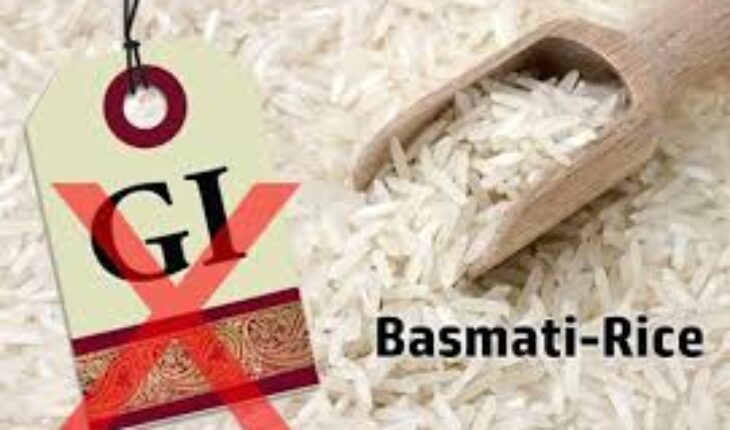The Intellectual Property Office of New Zealand (IPONZ) has turned down the Government of India’s application for the GI trademark of basmati rice. New Zealand has cited reasons for rejecting India’s trademark application, mainly due to the farming and production of basmati rice beyond the Indian region. (1). The Agricultural and Processed Food Products Export Development Authority (APEDA), also recognised as Indian authorities for the protection and registration of Indian exports, filed the trademark application to the relevant countries. The authorities have also previously failed to trademark ‘BASMATI’ in Australia.
Information reveals, export of Basmati rice of value worth Rs 52,000 is being done by the exporters of our country to United Arab, Iran and few other gulf countries every year which include more than 30% rice produced in Haryana. Information also reveals that the cultivation of Basmati rice is being done in 95 districts in seven states including Haryana, Punjab, Western U.P, Delhi, Himachal Pradesh, Uttarakhand and Jammu-Kashmir in the country in nearly 30 lakh hectare area. Basmati is a variety of rice traditionally grown in the Indian subcontinent. India accounts for the majority of the international trade in basmati rice, followed by neighbouring countries Pakistan and Sri Lanka. However, many other countries grow the basmati rice variety on home soil .
Both New Zealand and Australia governments rejected India’s trademark or GI application on related grounds, citing the basmati rice as ‘not only grown in India’ or similar. IPONZ stated that basmati rice is produced in multiple rice-producing countries, including Pakistan, considered second after India in basmati rice production. IPONZ decided India’s application demonstrated contributions from neighbouring countries to the basmati rice market. On these grounds IPONZ refused to grant exclusive rights of the term ‘BASMATI’ to the Indian authorities. Although, India has a 100-year history of basmati rice farming as compared to Pakistan’s 75-year history. Moreover, The Trade Development Authority of Pakistan had also applied for the ‘BASMATI’ trademark certification late last year to protect its rights, the case is still pending. IPONZ recently issued its decision declining the Government of India’s certification application for the BASMATI word mark, citing the existence of rice growers outside of India who also have a right to use the term.
Former President of All India Rice Exporters Association Vijay Setia said the refusal of GI Trade Mark by New Zealand and Australia governments in case of Basmati rice will benefit exports from Pakistan our prime competitor in rice exports and our experts are trying hard on this issue for the withdrawal of ban in case of Basmati rice export having GI tag under section 1999 based on providing quality of the product on international level. He said, the suspension of GI trademark on Basmati rice export from India will adversely affect farmers cultivating Basmati rice in Haryana.






